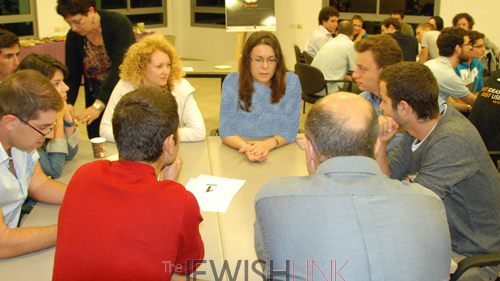Every year students from across North America choose to travel oversees to study medicine at the Technion American Medical School (TeAMS) located in Haifa, Israel. The opportunity affords students a unique learning experience.
Grueling work, late hours and competitive nature are among common stereotypes of medical school. Medical students are under the constant pressure of tests and placements that most spend all their exam-free hours in the library. However, upon the sunny shores of Haifa, Israel, there is an additional component added to the study of medicine: efforts to retain compassion.
In recent years, there has reportedly been a growing disengagement between doctors and patients. Patients claim that doctors’ communication, as well as social skills, have been uninformative and even cold, and leave some with a lack of trust in their physicians. Additionally, doctors have been reporting a sense of disconnect with their work, as the New York Times states, almost 50 percent of doctors express symptoms of burnout, which includes detachment. After all, when diagnosing cancer is a frequent and regular part of the day, can it really be done with the expected care and sensitivity each time?
TeAMS’ class of 2017 is required to take a class entitled “Healer’s Art”, designed by Rachel Naomi Remen, MD. It is within this course that students open up to one another and discuss the fusion of the goals and practices of physicians. Noah Schwartz, first year TeAMS student from Toronto, explains, “Even though there’s limited time physicians spends with patients, you can make a patient feel comfortable, and that’s really the pinnacle of this experience.”
During a “Healer’s Art” class, there’s a palpable change in atmosphere as a room full of biology majors eloquently discusses methods to keep them focused on staying compassionate. Throughout the course the students describe what they hope to bring to medicine, to others, and to their own lives. “It’s amazing”, states Robert Lubin, student services director, “this is the one course without an examination and it has the highest amount of attendance; the students really earnestly care about the topic and are excited to engage in discussions.”
Scott Freidberg, first year TeAMS student from Miami, explains the affect the course has had on him. “It’s all about perception. For example, if someone yells at you, you can think only about yourself, zoom out of the situation and react based off of your own perception alone. Or, you can try and look at it from their perspective, remain calm, and understand that they have a different outlook,” Friedberg says. “This class teaches us about perspective analysis and how to retain it when practicing medicine.”
In addition to academic methods applied to keep on track with the “human” side of medicine, students also make sure to engage in non-biology related activities, which help them connect with others.
Anne Montal, first year medical student at TeAMS and social coordinator, describes the importance of engaging in social activities in between her strenuous work load. “My job as social coordinator is to try and find a way to help people release steam,” Montal says. “Every day is stressful, we’re given so much information, so we just try to help people connect with one another and make them feel human again.” Events range from yoga on the beach and singles mixers, to collaborated holiday meals and volunteer activities.
The various efforts Technion students engage in helps them take a step back from their daily hectic lives. This key component of reflection is a crucial message that every individual would do well to absorb, regardless of their profession or stage in life.
By Rachel Stern Siegman






